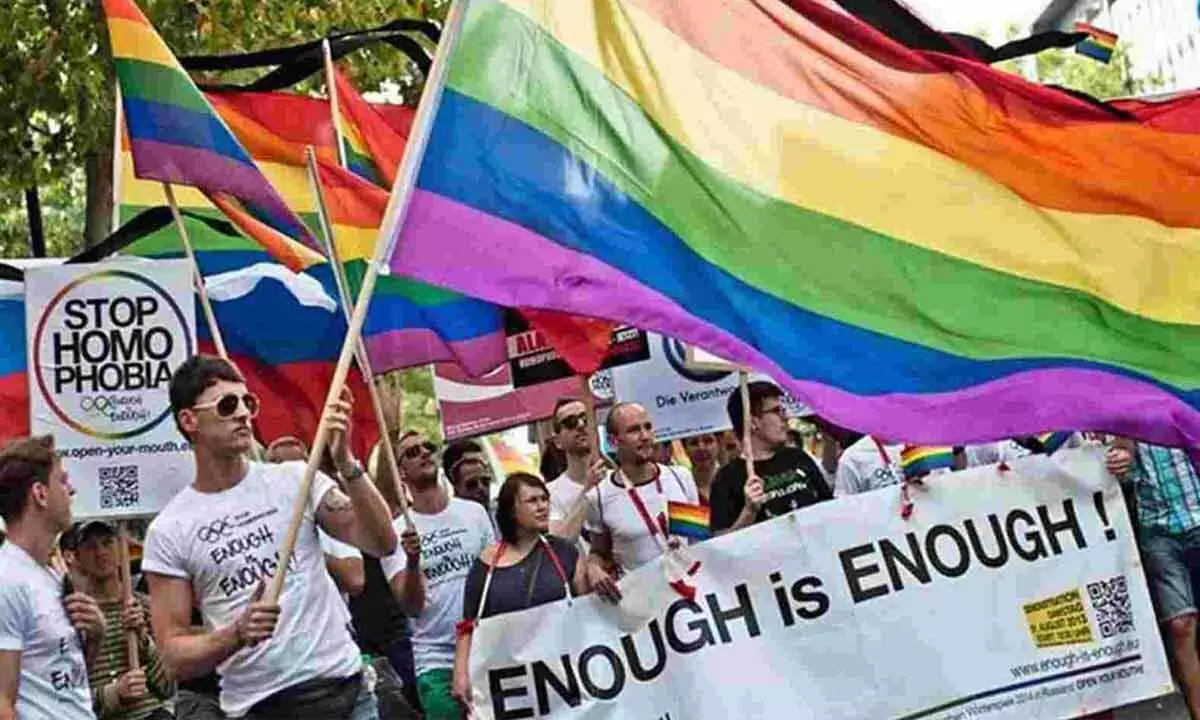Loyalty to LGBTQ+ cause remains a far cry in the corporate world

Loyalty to LGBTQ+ cause remains a far cry in the corporate world
Instead of shallow promises, LGBTQ+ individuals deserve the playing-field to be levelled and made open to their interventions
Concerns around gender equality and the demand for a fairer world have evolved with time. We inhabit a time of unprecedented diversity and calls for it. Yet, diversity and inclusion efforts always seem to be chasing their elusive goals.
The reason behind it is deceptively simple. Like most things today, while there is a lot of talk and rhetoric about inclusion, it is often reduced to being a platitude in the absence of real action. Inclusion is not an abstract idea suspended in vacuum; it should lead to empowering changes in our ecosystems, which involve actual transformations. Rather than merely waxing eloquent about inclusion, we need to create empowering circumstances that allow people to be included to become real participants and impact substantial decisions. As we celebrate the multiplicity of gender identities and diversity of human existence, let us take a look at where the workplace stands in relation to its bid to include queer people. While corporations and organizations across the world have pledged loyalty to the LGBTQ+ cause, with firms signing declarations to prevent harassment at the workplace, a lot of work remains to be done.
As experts at McKinsey note, a growing business case for inclusion has not translated into solid gains for the LGBTQ+ community within the workplace itself. According to their 'Women in the Workplace' research, LGBTQ+ women have been found to be more under-represented than women generally in America's largest corporations with only four openly LGBTQ+ CEOs head these corporations, only one of whom is female and none of whom is trans. Their research also discovered that LGBTQ+ women face increased sexual harassment and discrimination based on gender and orientation while trans employees faced a distinct set of obstacles to performance and career progression.
These are not merely empirical findings, but have real-life implications. In the presence of a culture of discrimination, erasure and harassment, whether subtle or overt, queer individuals have faced gigantic challenges - professional, emotional and mental to come out on top and decisively participate at the workplace. Therefore, as the study rightly points out, merely having a formal proclamation to the cause of inclusion has not resolved long-standing issues effectively and we need to turn inclusion into a platform for substantial and consequential participation.
To this end, a few introductory measures to ensure structural support are necessary. Starting off, we must first ensure compulsory presence of LGBTQ+ individuals at the workplace by creating posts exclusively for such applicants. Once presence is taken care of, there has to be a regime of gender sensitization and education in place.
Infrastructure and policies of the office have to be altered as well, with the presence of appropriate bathroom facilities and health support and leaves for transitioning employees. Finally, we need to set up resource cells and grievance redressal mechanisms for queer individuals, which can provide the specific kinds of support they seek or might require. These steps are necessary and fundamental to build an environment for meaningful participation.
Once these reforms are accomplished in the organizations, the real deal can be achieved by making the leadership sensitive and proactive and approaching queer employees for insights, feedback and perspectives on major company decisions. In other words, their inclusion has to be made participatory to an extent where they are directly involved with and are exhorted to participate in professional discussions and projects. When that does happen, the resource cells and grievance redressal mechanisms have to be vigilant to respond to all sexist, trans-phobic and inappropriate behaviour, linguistic expressions and micro-aggressions by people in the organization, so that the flow of queer participation is undeterred. Finally, when dealing with projects that involve a social dimension, particularly dealing with issues of gender and sexuality, let queer people spearhead and weigh in. These changes in professional culture alongside structural transformations can effectively catalyze queer participation at the workplace, instead of a mere rhetorical stance that advocates inclusion.
On the whole, inclusion means little without equal opportunity to create value and decide the face of work. Instead of shallow promises, LGBTQ+ individuals deserve the playing-field to be levelled and made open to their interventions. This is what can make the world of work a fairer place and craft the next chapter in the quest for equality.
(The author is Founder & CEO
Upsurge Global and Adjunct Professor and Advisor EThames College)















